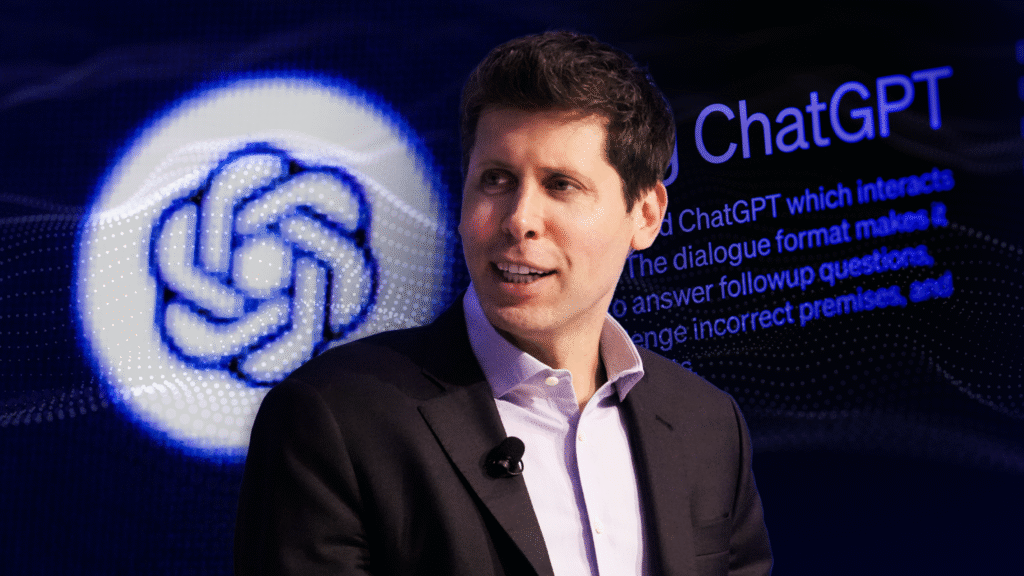In a bold and unprecedented move, OpenAI is making ChatGPT Enterprise for government available to American federal agencies for just $1 per agency for one year. This groundbreaking agreement, made through the U.S. General Services Administration (GSA), isn’t just a financial bargain it’s a strategic shift that could shape the future of AI in the public sector.
Through this initiative, OpenAI is giving all eligible federal agencies access to ChatGPT Enterprise for government, including advanced tools like Deep Research, GPT-4o voice mode, and data privacy firewalls. The agreement was made under GSA’s Multiple Award Schedule and OneGov contract vehicle, which allows agencies to quickly access pre vetted technology services without lengthy procurement processes.
The deal also includes a 60 day free training and evaluation period through the OpenAI Academy, designed in partnership with BCG and Slalom. We are providing a powerful AI productivity tool to public servants at an unprecedented price to help them serve citizens better, said Sam Altman, CEO of OpenAI.
Undercutting Rivals: A Strategic Masterstroke
OpenAI’s aggressive pricing undercuts major competitors like Google (Gemini) and Anthropic (Claude), who have also been cleared for government use under the same federal vendor program. However, those companies have not yet released public pricing that comes close to OpenAI’s $1 per agency deal.
This strategy makes ChatGPT Enterprise for government the most accessible and low risk AI solution for federal departments. By becoming the first tool agencies experiment with, OpenAI builds early loyalty and valuable experience data within the federal ecosystem.
No training on user data: OpenAI has committed that all agency prompts, inputs, and outputs will remain confidential and won’t be used to train its models.
Compliance ready: The tool meets federal cybersecurity and data handling standards under GSA’s Authority to Operate (ATO) protocols.
Tailored training: Agencies get onboarding and education to help non technical employees use generative AI safely and effectively.
Early Results Show Real Impact
In a pilot with over 500 employees, users reported saving an average of 95 minutes per day on tasks like email drafting, spreadsheet automation, and report writing. That equates to thousands of collective hours saved every month reinvested into strategic planning and citizen engagement.
In a 12 week test, 85% of participating staff reported that ChatGPT made their work more efficient, particularly in document summarization, audit preparation, and internal communications. The state is now exploring permanent integration.
These cases prove that ChatGPT Enterprise for government isn’t just a novelty it’s delivering measurable, meaningful productivity boosts.
A National AI Strategy in Motion
According to Michael Rigas, former Acting Administrator at GSA. This partnership directly supports the federal government’s AI modernization goals. It’s not just about saving money it’s about building capacity.
Experts believe OpenAI’s initiative aligns closely with the White House’s National AI Strategy, which encourages responsible AI adoption in public services to maintain the American’s global leadership.
Cybersecurity analysts have praised the deal’s safeguards, highlighting its potential to become a model for future public private technology partnerships.
A Civil Servant’s First Week with AI
Imagine you’re a mid-level analyst at a federal housing agency. You get an internal email announcing the free trial of ChatGPT Enterprise for government. Out of curiosity, you try using it to draft a housing policy summary.
It cuts your task time in half. Then you use it to clean up your spreadsheet. Next day, your team uses it to write a grant proposal draft. Within a week, the whole office is experimenting. The learning curve is gentle, and suddenly you’re not bogged down by repetitive tasks you’re doing more meaningful work. It felt like going from dial up to broadband overnight, one pilot user wrote in feedback submitted during a training session.
What This Means for the Future
1. A New Norm for Procurement
Historically, government technology adoption is slow and expensive. This $1 model eliminates price as a barrier and accelerates the pilot to deployment cycle.
2. Pressure on Competitors
Anthropic, Google, and others will now face intense pressure to match OpenAI’s pricing if they want to stay relevant in the federal AI race. This could spark a competitive wave of public sector AI affordability.
3. Employee Upskilling at Scale
With OpenAI Academy, public servants will have free access to AI training meaning the workforce won’t just use the tools, they’ll understand how they work. That’s a long term investment in federal efficiency.
Post Year Pricing: After the first year, pricing remains unclear. Will agencies be hooked on a tool they suddenly can’t afford?
AI misuse: As always, introducing AI comes with risks of prompt leaks, over reliance, or misuse. However, GSA’s oversight and security guardrails are meant to prevent this. If OpenAI becomes the default tool across federal agencies, it could limit future competition and innovation.
A Bold Leap Toward AI Driven Governance
OpenAI’s ChatGPT Enterprise for government offering for just $1 per agency is more than a PR stunt it’s a disruptive strategic move that democratizes generative AI for the public sector. It removes the financial risk, accelerates skill development, and sets a precedent for how federal agencies adopt transformative technology.
Whether it sparks a competitive race or locks OpenAI in as the de facto government AI provider, one thing is certain, this move reshapes how the U.S. government will work with AI for years to come.

